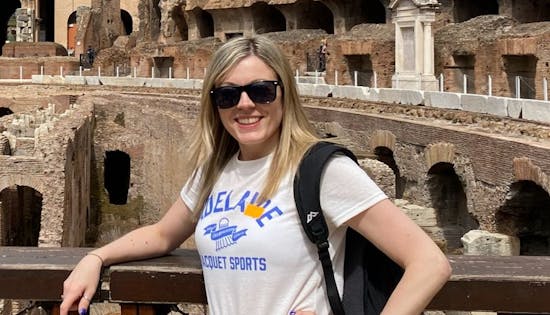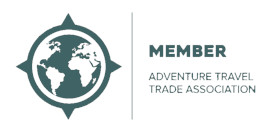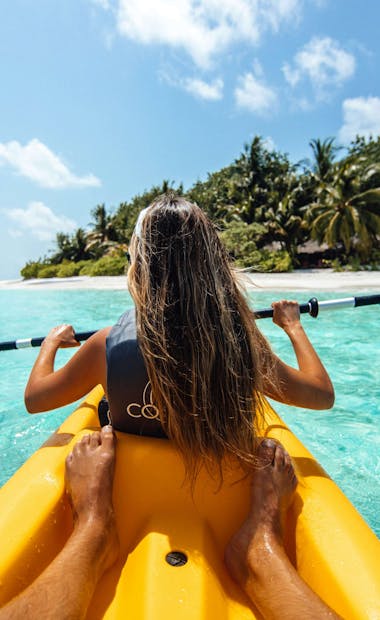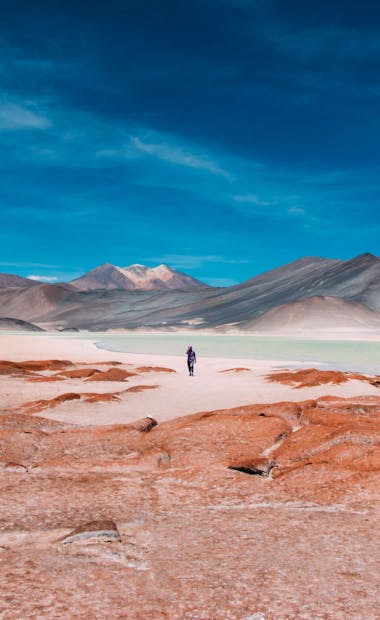
Chile Tours
A land of contrast between deserts and mountains, volcanoes and glaciers.
Popular tours
- Save26%
 View Tour
View TourTorres del Paine - Full Circuit Trek - 11 Days
- Puerto Natales to Puerto Natales
- Age group: 12 - 100
- Max group size: 16
Was:£4,099From£3,044 - Save1%
 View Tour
View TourTorres del Paine - The W Trek - 6 Days
- Puerto Natales to Puerto Natales
- Age group: 12 - 100
- Max group size: 16
Was:£2,199From£2,177 - Save1%
 View Tour
View TourPatagonia: Torres del Paine Classic W Trek - 6 Days
- Puerto Natales to Puerto Natales
- Age group: 15 - 99
- Max group size: 14
Was:£2,270From£2,247 - Save1%
 View Tour
View TourEaster Island Independent Short Break - 4 Days
- Easter Island to Easter Island
- Age group: 15 - 99
- Max group size: 12
Was:£983From£973 - Save1%
 View Tour
View TourSantiago Independent Short Break - 4 Days
- Santiago to Santiago
- Age group: 15 - 99
- Max group size: 12
Was:£573From£567 - Save1%
 View Tour
View TourPatagonia Independent Short Break: Torres Del Paine - 5 Days
- Puerto Natales to Puerto Natales
- Age group: 15 - 99
- Max group size: 12
Was:£1,170From£1,158
Chile Tours
Welcome to Chile, a land of extraordinary beauty and endless adventure. With our diverse range of Chile tours and holidays, you have the opportunity to explore this enchanting country, filled with awe-inspiring landscapes, vibrant cities, and rich cultural heritage.
Chile is a dream destination for nature enthusiasts, thrill-seekers, and curious explorers. From the vast Atacama Desert in the north to the pristine fjords of Patagonia in the south, Chile offers a remarkable array of natural wonders to discover. Immerse yourself in the surreal landscapes of the Atacama Desert, where lunar-like valleys, geysers, and salt flats create a photographer's paradise. Traverse the mystical ancient forests and turquoise lakes of the Lake District, a haven for hikers and nature lovers. And let's not forget about the awe-inspiring Patagonia, home to towering glaciers, majestic peaks, and dramatic fjords that will leave you breathless.
For those seeking cultural immersion, Chile's vibrant cities are not to be missed. Explore the charming streets of the capital, Santiago, where modern skyscrapers coexist with colonial architecture and traditional markets. Experience the bohemian vibes of Valparaiso, a UNESCO World Heritage Site, with its colorful hillside neighborhoods and street art. Delve into the indigenous culture of the mystical Easter Island, home to the enigmatic Moai statues that have fascinated visitors for centuries.
One of the most remarkable aspects of Chile is its incredible biodiversity. Venture into the mystical forests of Chiloé Island, known for its unique mythology and distinctive wooden churches. Embark on a wildlife safari in the remote and pristine landscapes of Torres del Paine National Park, where guanacos, foxes, and condors roam freely. Don't miss the opportunity to witness the mesmerizing spectacle of humpback whales breaching off the coast of the Chilean fjords.
Chile's gastronomy is a delightful fusion of flavors, with fresh seafood, succulent meats, and local produce taking center stage. Indulge in traditional dishes like the mouthwatering empanadas, hearty cazuela soup, and the famous Chilean wine, known worldwide for its exceptional quality. Let your taste buds embark on a culinary journey that will leave you wanting more.
With its warm and welcoming people, Chile offers a safe and friendly environment for travelers. The country boasts excellent infrastructure, making it easy to navigate and explore its many attractions. Whether you seek adrenaline-pumping adventures, serene nature retreats, cultural immersions, or a combination of it all, Chile has something for everyone.
At The Adventure People, we curate unforgettable Chile tours and holidays that cater to your desires and preferences. Our experienced guides and expertly crafted itineraries ensure that you make the most of your time in this captivating country. Come and experience the wonders of Chile, where every step unveils a new chapter of breathtaking beauty and endless possibilities.
When is the best time to visit Chile?
The best time to visit Chile largely depends on the specific regions you plan to explore and the activities you wish to engage in. Due to its vast geographical diversity, Chile experiences a wide range of climates and weather patterns throughout the year. Here's a breakdown of the best time to visit different parts of Chile:
Central Chile and Santiago: The central region, including Santiago, has a Mediterranean climate with hot, dry summers (December to February) and mild, wet winters (June to August). The spring (September to November) and fall (March to May) months offer pleasant temperatures and fewer crowds, making them ideal for outdoor activities and city exploration.
Northern Chile and Atacama Desert: The Atacama Desert, one of the driest places on Earth, enjoys a year-round arid climate with minimal rainfall. The region experiences warm temperatures during the day and cool nights. It is an excellent destination to visit at any time, with clear skies for stargazing and unique landscapes to explore.
Southern Chile and Patagonia: Southern Chile and Patagonia have a temperate oceanic climate, characterized by cool summers and mild, rainy winters. The peak tourist season is during the summer months (December to February) when the weather is milder and more suitable for outdoor activities. However, the shoulder seasons of spring (September to November) and fall (March to May) offer beautiful landscapes, fewer crowds, and a chance to witness stunning autumn colors.
Easter Island: Easter Island has a subtropical climate with mild temperatures throughout the year. The best time to visit is during the shoulder seasons of spring and fall when the weather is pleasant, and there are fewer tourists. However, the island is a year-round destination, and even during the peak summer season, it maintains a relaxed atmosphere.
It's important to note that Chile's weather can be unpredictable, and conditions can vary within different regions. It's recommended to check the specific weather patterns for your desired destinations and plan accordingly. Additionally, popular attractions, such as Torres del Paine National Park, may require advance booking, especially during the peak summer season.
Ultimately, the best time to visit Chile depends on your personal preferences, desired activities, and tolerance for crowds. Whether you're seeking a summer adventure in Patagonia, a cultural exploration in Santiago, or stargazing in the Atacama Desert, Chile offers unique experiences year-round.
Will I need a visa to travel to Chile?
The visa requirements for Chile vary depending on your nationality and the purpose and duration of your visit. Here's an overview of the visa requirements for common types of travelers:
Tourists: Citizens of many countries, including the United States, Canada, the United Kingdom, Australia, and most European Union countries, can enter Chile as tourists without a visa for up to 90 days. This is known as the "Tourist Card" or "Tarjeta de Turismo" and is obtained upon arrival at the airport or land border crossing. It is important to note that the 90-day period begins from the date of entry.
Business Travelers: Business travelers from certain countries may be eligible for a visa waiver or can obtain a business visa upon arrival. However, it is recommended to check with the Chilean consulate or embassy in your home country to determine the specific requirements and eligibility criteria.
Work or Study Visas: If you plan to work or study in Chile, you will need to obtain the appropriate visa or permit. These visas have specific requirements, including a job offer or acceptance from a Chilean educational institution, and must be obtained prior to travel. It is advisable to consult with the Chilean consulate or embassy in your home country or seek guidance from your employer or educational institution for the specific visa process.
Other Visa Categories: Chile offers various visa categories, including for investors, retirees, family reunification, and diplomatic purposes. Each category has specific requirements and application procedures. It is recommended to consult with the Chilean consulate or embassy in your home country for detailed information on the visa category that applies to your situation.
It's important to note that visa requirements can change, and it is always recommended to check with the nearest Chilean consulate or embassy or visit the official website of the Chilean Ministry of Foreign Affairs for the most up-to-date and accurate visa information based on your nationality and travel plans.
Additionally, all visitors to Chile must have a valid passport that is valid for at least six months beyond their intended departure date. It's also advisable to have proof of onward or return travel, as well as sufficient funds to cover your stay in Chile.
Remember, visa regulations can vary, so it is crucial to verify the specific requirements based on your nationality and purpose of travel to ensure a smooth and hassle-free entry into Chile.
What are the must see destinations in Chile?
Chile is a country brimming with incredible natural wonders, vibrant cities, and cultural gems. Here are some must-see destinations in Chile that will captivate your senses and create unforgettable memories:
Santiago: Start your journey in the bustling capital city of Santiago. Explore its vibrant neighborhoods, such as Bellavista and Lastarria, visit iconic landmarks like La Moneda Palace and Plaza de Armas, and immerse yourself in the city's rich cultural scene and culinary delights.
Valparaíso: Just a short distance from Santiago, Valparaíso is a colorful coastal city known for its bohemian atmosphere, stunning street art, and historic funiculars. Get lost in its winding streets, visit the colorful Cerro Alegre and Cerro Concepción neighborhoods, and take in breathtaking views from its many lookout points.
Atacama Desert: Journey to the otherworldly landscapes of the Atacama Desert, one of the driest places on Earth. Explore the Valle de la Luna (Moon Valley) with its lunar-like formations, witness geysers erupting at El Tatio, float in the saltwater lagoons of the Atacama Salt Flat, and marvel at the clarity of the night sky in one of the world's best stargazing locations.
Easter Island: Discover the mystical allure of Easter Island, also known as Rapa Nui. This remote island in the Pacific Ocean is famous for its monumental stone statues called Moai. Explore the archaeological sites, learn about the island's Polynesian heritage, and soak in the beauty of its pristine beaches and volcanic landscapes.
Torres del Paine National Park: Journey to the breathtaking landscapes of Patagonia and immerse yourself in the natural beauty of Torres del Paine National Park. Witness the towering granite peaks of the Torres del Paine, hike through pristine valleys, marvel at glaciers, and spot unique wildlife, including guanacos and Andean condors.
Chiloé Island: Visit the enchanting Chiloé Island, known for its picturesque fishing villages, colorful palafitos (stilt houses), and distinctive wooden churches, designated as UNESCO World Heritage sites. Immerse yourself in the island's folklore, taste traditional dishes, and explore the beautiful national parks and coastal landscapes.
Lake District: Experience the tranquility of Chile's Lake District, a region characterized by stunning lakes, snow-capped volcanoes, and ancient forests. Visit the charming towns of Puerto Varas and Puerto Montt, cruise the pristine waters of Lake Todos los Santos, and relax in the soothing hot springs of Puyehue National Park.
These are just a few highlights of the many treasures that Chile has to offer. From the vibrant city life to the awe-inspiring natural landscapes, Chile invites you to embark on a journey of discovery, adventure, and cultural immersion. Let the beauty of this diverse country captivate your heart and create memories that will last a lifetime.
What is the local currency in Chile, and can I use credit cards?
The local currency in Chile is the Chilean Peso (CLP). When traveling to Chile, it is advisable to have some local currency on hand for small purchases, transportation, and transactions in areas where card acceptance may be limited. Here are a few key points regarding currency and credit card usage in Chile:Currency Exchange: It is recommended to exchange your currency for Chilean Pesos upon arrival at the airport, at authorized exchange offices, or at banks. Avoid exchanging money with street vendors or unauthorized individuals to ensure the security of your transactions.
ATMs: ATMs are widely available in cities and towns throughout Chile, offering a convenient way to withdraw cash in the local currency. It is advisable to use ATMs located in reputable establishments such as banks or shopping centers for enhanced security.
Credit Cards: Credit cards are widely accepted in most hotels, restaurants, shops, and tourist establishments in major cities and popular tourist destinations in Chile. Visa and Mastercard are the most commonly accepted cards, followed by American Express and Diners Club. It is recommended to inform your bank or credit card provider of your travel plans to avoid any issues with card usage abroad.
PINs and Chip Technology: Many credit cards in Chile use chip-and-pin technology for enhanced security. Ensure that your credit card has a chip and set a PIN (Personal Identification Number) before traveling. This will allow you to easily use your card at payment terminals and ATMs.
Cash vs. Cards: While credit cards are widely accepted, it's a good idea to carry some cash for small purchases, local markets, and establishments in more remote or rural areas where card acceptance may be limited. It's also handy to have small bills and coins for public transportation, tips, and street vendors.
Currency Exchange Rates: Keep in mind that currency exchange rates may vary, and it is advisable to compare rates and fees before exchanging currency or using ATMs. Some hotels and larger businesses may offer currency exchange services, but rates may not be as favorable compared to authorized exchange offices or banks.
Remember to keep your cash, cards, and personal belongings secure during your travels. It's a good practice to have a mix of payment options (cash and cards) for flexibility and to ensure you are prepared for various situations.
As always, it is recommended to check with your bank or credit card provider for any specific information or restrictions related to using your cards in Chile, as policies may vary.
Is Chile a good family holiday destination?
Yes, Chile is a fantastic family holiday destination with a wide range of attractions and activities that can be enjoyed by visitors of all ages. Here are some reasons why Chile is an excellent choice for a family vacation:
Natural Beauty: Chile is renowned for its breathtaking natural landscapes, which offer numerous opportunities for outdoor adventures. From the towering peaks of the Andes Mountains to the pristine lakes and fjords, families can explore national parks, hike trails, and engage in wildlife spotting, creating unforgettable memories together.
Family-Friendly Cities: Chile's cities, such as Santiago and Valparaíso, offer a blend of cultural experiences and family-friendly attractions. Museums, parks, markets, and interactive exhibitions provide educational and entertaining activities for children. In addition, there are amusement parks and recreational areas specifically designed for family enjoyment.
Unique Wildlife Encounters: Chile is home to diverse wildlife, including penguins, dolphins, sea lions, and even the elusive puma. Kids will be fascinated by the opportunity to see these animals up close in their natural habitats, such as the coastal areas or the Torres del Paine National Park.
Outdoor Activities: Chile offers a wide range of outdoor activities suitable for families. You can embark on gentle hikes, horseback riding adventures, kayak trips, or even go skiing or snowboarding in the winter season. These activities promote a sense of adventure, exploration, and physical activity for everyone to enjoy.
Cultural Immersion: Chilean culture is rich and diverse, providing families with opportunities to learn about local traditions, cuisine, and folklore. From participating in traditional dance performances to trying authentic Chilean dishes, children can gain insights into a different culture and broaden their horizons.
Safety: Chile is considered one of the safest countries in South America, making it a reassuring choice for family travel. The country has a well-developed tourism infrastructure, reliable transportation options, and a reputation for being welcoming to visitors.
It's worth noting that some destinations in Chile may have specific age restrictions or require certain levels of physical fitness for certain activities. It is advisable to plan your itinerary accordingly and choose age-appropriate activities that suit the needs and interests of your family members.
Whether you're exploring the vibrant cities, discovering the natural wonders, or immersing in the local culture, Chile offers an enriching and memorable experience for families.
Is Chile a good destination for solo travellers?
Yes, Chile is a wonderful destination for solo travelers seeking adventure, cultural experiences, and natural beauty. Here are some reasons why Chile is a great choice for solo travel:
Safety: Chile is known for being one of the safest countries in South America. The crime rates are relatively low, and the locals are generally friendly and welcoming to visitors. This makes it a comfortable and secure destination for solo travelers to explore.
Diverse Landscapes: Chile offers an incredible variety of landscapes, from the arid Atacama Desert in the north to the pristine fjords and glaciers of Patagonia in the south. Solo travelers can immerse themselves in the stunning natural beauty, hike through national parks, and embark on outdoor adventures such as trekking, wildlife spotting, and stargazing.
Outdoor Activities: Chile is an outdoor enthusiast's paradise, offering a wide range of activities for solo travelers. Whether it's hiking in Torres del Paine National Park, skiing in the Andes Mountains, or kayaking in the lakes and rivers, there are endless opportunities for adventure and exploration.
Cultural Experiences: Solo travelers can immerse themselves in Chilean culture by exploring vibrant cities like Santiago and Valparaíso, visiting local markets, and trying traditional cuisine. There are also opportunities to learn about the indigenous Mapuche culture, attend cultural events, and interact with locals, creating a rich and authentic travel experience.
Ease of Travel: Chile has a well-developed tourism infrastructure, making it relatively easy for solo travelers to navigate the country. Public transportation is efficient and reliable, and there are plenty of accommodations options ranging from budget hostels to luxury hotels. English is spoken in many tourist areas, although it's always helpful to know some basic Spanish phrases.
Social Atmosphere: Chile attracts travelers from all over the world, making it a great place to meet fellow adventurers and like-minded individuals. Hostels and tour activities provide opportunities to connect with other travelers, join group excursions, and share memorable experiences together.
Whether you're seeking solitude in the vast landscapes or looking to connect with other travelers, Chile offers a welcoming and fulfilling experience for solo travelers. With its safety, natural wonders, and cultural richness, Chile is a destination that can ignite your sense of adventure and create lifelong memories.
Is Chile a safe destination?
Chile is generally considered a safe destination for travelers. It has a reputation for being one of the safest countries in South America. However, it's always important to exercise caution and take necessary precautions while traveling, as safety can never be guaranteed in any destination. Here are some key points to consider regarding safety in Chile:
Low Crime Rates: Chile has relatively low crime rates compared to other countries in the region. Violent crimes targeting tourists are rare, but petty theft and pickpocketing can occur in crowded tourist areas or public transportation. It's advisable to take common-sense precautions like keeping an eye on your belongings, avoiding displaying valuable items, and using secure transportation options.
Political Stability: Chile is known for its political stability and well-functioning institutions. The country has a long history of democratic governance, which contributes to a generally safe and stable environment for travelers.
Tourist Infrastructure: Chile has a well-developed tourist infrastructure with reliable transportation networks, quality accommodations, and a range of tourist services. The tourism industry is well-regulated, ensuring that visitors have access to safe and reliable services throughout their stay.
Natural Hazards: Chile is geographically diverse, with a wide range of landscapes, including volcanoes, mountains, and coastal areas. While these natural features contribute to the country's beauty, they also come with certain risks. It's important to stay informed about weather conditions, follow safety guidelines during outdoor activities, and seek advice from local authorities or tour operators if venturing into remote or challenging areas.
Health and Safety Precautions: As with any travel destination, it's important to take necessary health and safety precautions. This includes staying updated on vaccinations, using insect repellent in certain regions, practicing safe food and water hygiene, and having travel insurance that covers medical emergencies.
Local Knowledge and Respect: Learning about the local customs, traditions, and cultural norms can help you navigate Chile more smoothly and show respect to the local population. By being aware of your surroundings and respecting local customs, you can enhance your safety and create a positive travel experience.
It's recommended to stay informed about travel advisories and consult official government websites or your country's embassy for the most up-to-date information on safety in Chile. Additionally, it's always a good idea to register with your embassy or consulate while traveling abroad, so they can assist you in case of any emergency.
By staying vigilant, being aware of your surroundings, and taking common-sense precautions, you can enjoy a safe and memorable visit to Chile.
Will I require any vaccinations to travel to Chile?
Before traveling to Chile, it is advisable to consult with a healthcare professional or a travel health clinic to receive the most accurate and up-to-date information regarding required vaccinations. The specific vaccinations you may need can depend on various factors, including your current immunization status, the duration of your stay, the areas you plan to visit, and your individual health considerations. However, here are some vaccinations that are commonly recommended for travelers to Chile:
Routine Vaccinations: Ensure that your routine vaccinations, such as measles, mumps, rubella (MMR), diphtheria, tetanus, pertussis (DTaP), varicella (chickenpox), and influenza, are up to date. These vaccinations are essential regardless of your travel destination.
Hepatitis A: Hepatitis A vaccination is recommended for most travelers to Chile, as the virus can be contracted through contaminated food and water. It is a viral infection that affects the liver, and the vaccine provides long-lasting protection.
Typhoid: Typhoid vaccination is recommended for travelers who plan to visit rural areas or areas with poor sanitation. Typhoid is a bacterial infection that can be contracted through contaminated food and water.
Hepatitis B: Hepatitis B vaccination is recommended for travelers who may have intimate contact with the local population or engage in activities that may expose them to the virus, such as getting a tattoo, receiving medical treatments, or having sexual encounters.
Rabies: Rabies vaccination may be considered for travelers who plan to engage in activities that may put them at risk of exposure to animals, such as hiking or working with animals. Rabies is a viral disease transmitted through the bite or scratch of an infected animal.
Yellow Fever: Yellow fever vaccination is required if you are traveling to Chile from a country with a risk of yellow fever transmission. It is also required if you have visited a yellow fever-endemic area within a certain period before your arrival in Chile.
Remember that vaccination recommendations can change, so it's important to consult with a healthcare professional or travel health clinic well in advance of your trip. They will consider your specific circumstances and provide personalized advice based on the most current information.
In addition to vaccinations, it's also a good idea to take general health precautions during your trip, such as practicing safe food and water hygiene, using insect repellent to prevent mosquito bites, and seeking medical attention if you experience any symptoms or health concerns while in Chile.
How does the rooming work on tours?
Small group tours in Chile typically involve a set itinerary where you travel with a group of fellow travellers and a tour leader/guide. Accommodation arrangements vary depending on the specific tour you choose. Here are some common aspects of rooming arrangements on small group tours:
Shared Rooms: In order to promote camaraderie and facilitate interaction among group members, most tours arrange shared accommodation. This means you will be paired with another member of the same gender from the group to share a room. Roommates may sometimes change periodically throughout the tour.
Single Supplement: If you prefer to have your own room and privacy, you may have the option to pay a single supplement fee. This additional fee allows you to have your own room for the duration of the tour. However, please note that single supplements can vary in cost and availability.
Roommate Matching: Tour operators usually offer roommate matching services, where they try to pair you with a suitable roommate based on your preferences, such as age range. This can help ensure compatibility and a more enjoyable experience for all participants.
Rooming Preferences: When booking your small group tour, it's important to communicate your rooming preferences to the tour operator. If you have specific requirements or preferences, such as sharing with a friend or a specific roommate request, it's advisable to inform the tour operator during the booking process.
It's important to carefully read the tour details and inclusions provided by the tour operator to understand their specific rooming policies. If having your own room is a priority, make sure to inquire about the availability of single supplements and any associated costs before booking your tour.
Keep in mind that while sharing a room with a fellow traveller can be a great way to meet new people and build connections, having your own room provides more privacy and flexibility. Consider your preferences and the dynamics of the tour when deciding whether to opt for a shared room or pay for a single supplement.
Remember to communicate your needs and preferences clearly with the tour operator during the booking process to ensure a comfortable and enjoyable accommodation experience on your small group tour in Chile.
What is the food like in Chile?
Chilean cuisine is diverse and influenced by various culinary traditions, including indigenous Mapuche flavors, Spanish heritage, and European influences. Here are some highlights of the food in Chile:
Seafood: As a long and narrow country stretching along the Pacific coast, Chile offers an abundance of delicious seafood. Fresh fish, including salmon, trout, and sea bass, are commonly served. The coastal regions are known for their ceviche, a dish made with raw fish or seafood marinated in lime or lemon juice.
Empanadas: Empanadas are a popular savory pastry in Chile. They are usually filled with ingredients such as seasoned beef, cheese, chicken, or seafood. These delicious turnovers are often enjoyed as a snack or as a meal.
Asado: Asado, or Chilean barbecue, is a significant part of Chilean culinary culture. It typically involves grilling various types of meat, such as beef, pork, lamb, or chorizo sausages. Asado gatherings are social events where families and friends come together to enjoy a feast.
Completo: The completo is Chile's version of a hot dog. It is typically loaded with ingredients like mayonnaise, avocado, sauerkraut, tomatoes, and various sauces. The completo italiano includes additional toppings of diced tomatoes and mayonnaise.
Pastel de Choclo: Pastel de Choclo is a traditional Chilean dish similar to a shepherd's pie. It consists of a sweet corn dough (choclo) covering a filling made of ground beef, onions, olives, and hard-boiled eggs. It is baked until the crust becomes golden and crispy.
Pisco Sour: Pisco Sour is a popular Chilean cocktail made with pisco (a grape brandy), lemon or lime juice, simple syrup, and egg white. It is a refreshing and tangy drink enjoyed in social gatherings or as an aperitif.
Sopaipillas: Sopaipillas are deep-fried dough made from pumpkin or squash. They are served as a street food snack or as an accompaniment to stews and soups. Sopaipillas can be enjoyed plain or with pebre, a traditional Chilean salsa made with onions, tomatoes, and cilantro.
Wine: Chile is renowned for its excellent wine production. The country's diverse climates and fertile valleys make it ideal for grape cultivation. Chilean wines, particularly reds like Cabernet Sauvignon and Carmenere, are internationally acclaimed and are a must-try for wine enthusiasts.
Chilean cuisine offers a wide range of flavors, from hearty meat dishes to fresh seafood delicacies. The country's culinary scene is evolving, with a growing emphasis on local and organic ingredients. Exploring the local markets, trying traditional dishes, and enjoying Chilean wines are great ways to immerse yourself in the country's rich gastronomic culture.
Can I drink the tap water in Chile?
In general, tap water in major cities and urban areas of Chile is considered safe to drink. The water is treated and meets international standards for quality. However, it's important to note that the water quality can vary in different regions, so it's advisable to exercise caution and take certain precautions, especially if you are traveling to rural or remote areas. Here are a few points to consider:
Tap Water in Urban Areas: In cities like Santiago, Valparaiso, and other developed areas, the tap water is usually safe for drinking and cooking. Hotels, restaurants, and public establishments typically use tap water for their services. However, if you have concerns or prefer additional peace of mind, you can choose to drink bottled water, which is widely available.
Rural and Remote Areas: In more rural or remote parts of Chile, the water sources may vary, and the quality of tap water might not be as reliable. In these areas, it is recommended to drink bottled water or use water purification methods like boiling, using water filters, or using water purification tablets.
Sensitive Stomachs: Even if the tap water is safe to drink, some travelers with sensitive stomachs or those not accustomed to the local water might experience digestive issues. In such cases, it is advisable to stick to bottled water or boiled water for drinking and brushing teeth.
Ice and Beverages: When ordering beverages, particularly in smaller establishments or street vendors, it's a good practice to ask for drinks without ice or confirm that they use purified water for ice cubes.
It's important to stay hydrated while traveling, especially in Chile's diverse landscapes. If you prefer not to rely on tap water, bottled water is readily available in most convenience stores, supermarkets, and hotels throughout the country. Additionally, remember to wash fruits and vegetables thoroughly with safe water or peel them before consumption.
Overall, while the tap water in urban areas of Chile is generally safe, it's always a good idea to stay informed about the specific water conditions in the region you are visiting and take appropriate precautions to ensure your well-being during your trip.
Are there any cultural norms in Chile I should follow?
When visiting Chile, it's always respectful and appreciated to familiarize yourself with the local cultural norms and customs. Here are some cultural norms to keep in mind during your stay:
Greeting and Personal Space: Chileans are generally warm and friendly people. When meeting someone, a handshake is the most common form of greeting. Close friends and family members may greet each other with a kiss on the cheek. Maintain an appropriate personal space, respecting people's comfort zones.
Punctuality: Punctuality is highly valued in Chilean culture, especially for business and formal occasions. It is considered polite to arrive on time for meetings, events, or appointments. However, in social settings or more casual situations, there may be some flexibility with timing.
Respect for Elders and Authority: Chilean society places importance on showing respect towards elders and those in positions of authority. It is customary to address older individuals with formal titles such as "Don" for men and "Doña" for women, followed by their surname.
Greetings and Goodbyes: It is common to greet people with a friendly "Hola" (hello) or "Buenos días/tardes/noches" (good morning/afternoon/evening). When leaving, it is polite to say "Adiós" (goodbye) or "Chao" (informal). Additionally, using "Por favor" (please) and "Gracias" (thank you) in interactions is appreciated.
Table Etiquette: If invited to someone's home for a meal, it is customary to bring a small gift, such as flowers or a bottle of wine, to show appreciation. Chileans often have a relaxed approach to dining, but it is still polite to wait for the host to begin eating before you start. If offered food or drinks, it's polite to accept, even if you take just a small portion.
Respecting Personal Space: Chileans value personal space, so it's important to be mindful of others' boundaries. Avoid standing too close to people unless necessary, and maintain an appropriate distance in public places.
Appropriate Attire: Chileans tend to dress modestly and conservatively, particularly in formal or business settings. When visiting religious sites or cultural landmarks, it is advisable to dress respectfully, covering shoulders and knees.
Conversation Topics: Chileans enjoy discussing a range of topics, including family, travel, sports, and cultural interests. However, it is best to avoid sensitive subjects like politics and controversial issues unless you are in a close and trusted company.
Tipping: In restaurants, a service charge is often included in the bill. However, leaving an additional tip of 10% is customary for good service. In other service industries, such as taxis or hotels, a small tip is appreciated.
Socializing and Time: Chileans often value personal relationships and enjoy socializing. Engage in conversations, show genuine interest in getting to know people, and be patient as building relationships may take time.
By respecting these cultural norms, you can enhance your interactions with locals, create positive connections, and have a more immersive and enjoyable experience in Chile. Embracing the local customs will be appreciated and contribute to a memorable trip.
What should I pack for a trip to Chile?
When packing for a trip to Chile, it's essential to consider the diverse landscapes and varying climates throughout the country. Here's a list of items to pack that will help you be prepared for your Chilean adventure:
Clothing: Pack a mix of lightweight and breathable clothing for warmer regions and cities, and warmer layers for cooler regions. Include t-shirts, shorts, skirts, lightweight pants, and long-sleeved shirts. Don't forget a lightweight waterproof jacket or windbreaker for unexpected weather changes. If you plan to visit the mountains or go trekking, pack thermal base layers, a warm fleece or down jacket, hiking pants, and sturdy hiking boots.
Footwear: Comfortable and durable walking shoes or sneakers are a must for exploring cities and towns. If you plan on hiking, bring sturdy and waterproof hiking boots. Flip-flops or sandals are handy for beach areas or relaxing at your accommodation.
Swimwear: If you're visiting coastal areas, lakes, or hot springs, bring swimwear for enjoying water activities or relaxing by the water.
Travel Accessories: Don't forget essentials like sunglasses, a sun hat or cap, a reusable water bottle, and a daypack for carrying your belongings while exploring. A money belt or a secure bag for carrying your valuables is also recommended.
Weather Protection: Pack sunscreen with a high SPF, as the sun in Chile can be strong, especially at higher altitudes or near water. Lip balm with SPF, a wide-brimmed hat, and sunglasses are also important for sun protection. Additionally, bring insect repellent for areas with mosquitoes or other insects.
Medications and First Aid Kit: If you have any specific medications, make sure to pack an ample supply for the duration of your trip. It's also a good idea to carry a basic first aid kit with essentials such as band-aids, pain relievers, anti-diarrheal medication, and any personal prescription medications.
Electrical Adapters: Chile uses Type C and Type L electrical outlets, so make sure to bring the appropriate power adapters for charging your electronic devices.
Travel Documents: Carry a photocopy or digital copy of your passport, travel insurance information, and other important documents. It's also helpful to have a printed or digital copy of your travel itinerary and hotel reservations.
Language Guide: While not necessary, having a pocket-sized English-Spanish phrasebook or a translation app on your phone can be helpful for communication, especially in more remote areas where English may not be widely spoken.
Miscellaneous: Other useful items to consider include a travel towel, a universal travel adapter, a reusable shopping bag for groceries or souvenirs, a travel-sized umbrella, and a camera or smartphone for capturing memories.
Remember to pack according to the specific activities and regions you plan to visit in Chile. It's always a good idea to check the weather forecast for your destinations and plan accordingly. Pack light layers that can be easily layered for warmth or removed for comfort. Most importantly, pack a sense of adventure and curiosity to fully enjoy your trip to Chile!
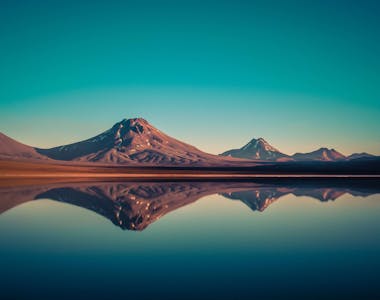
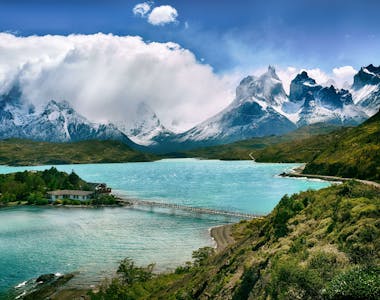
Book With Confidence
Monthly Payments
Spread the costs with no interest or additional fees
Best Price Guarantee
We won't be beaten on price. If you find this adventure at a lower price please get in touch!
Reserve now & pay later
Reserve your adventure today and pay later, free of charge
ATOL protected
Book with confidence
Hold your space today, for free
or book your trip with a deposit and then pay the rest in instalments.
Reserve your flights with us
Add flights to your booking and we'll take care of the rest. You'll get 24/7 support from our team & ATOL protection.
Speak to our experts
Call or email our expert team to find out more and help with ideas and planning.
